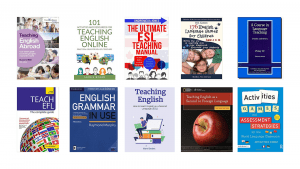Rhetoric is a fringe subject in ELT. This is evident from its sparse inclusion in pedagogical ELT books. When included it is always in disguise: English for persuasion, developing an argument…etc. Rhetoric techniques are very rarely discussed.
Rhetoric, as a subject relevant to ELT, is viewed with indifference, and even intolerance. I was recently ejected from a Facebook group for just raising the subject, which, I admit was quite a revelatory shock. Perhaps ‘avoidance of the unknown’ is a more precise term to ‘indifference’? Or ‘ignored as an irrelevence’? Or even : ‘shunned as an outdated concept, steeped in classicism and lacking a role in today’s modern world.”? Such views, I argue, are grossly mistaken.
Rhetoric has been viewed with suspicion since its inception by the ancient Greek sophist, Protagoras: Or that snake in the garden of Eden who persuaded Adam with its slithering forked-tongue. Famously, of course, Socrates was made to drink the cup of hemlock, and die, for using his verbal art of persuasion to lead the young away from established ideas. To the uninitiated, rhetoric has had that reputation for the abusive use of verbal power tinged with sorcery and mysticism. Heretics have died for putting it to use. To the adept, rhetoric simply involves using mundane ‘tricks-of-the-trade’. When Aristotle analysed the subject, he found nothing overly mysterious. Just common sense logos (rationality), ethos (morality), and pathos (emotion).
But the image of a slippery, silver-tongued salesman slickly seducing with carefully crafted words, remains to remind us of those sensual, singing Sirens whose sweet lulling voices lured Odysseus’s boat onto treacherous rocks. Be careful! Don’t be spellbound, hynotised or led astray by clever words! Lies. They’re all damned lies! Devices for politicians to sweeten unsavoury policies for public consumption. Rhetoric, applied thus, is a dirty word.
But really? Rhetoric? A dirty word? No way! How can Shakespeare’s mastery of his wordsmithing craft, employing as it does numerous rhetoric tools, be called ‘dirty’? Do not the adjectives eloquent, elegant and exquisite more precisely spring to mind to describe his sublime artistry? Or speaking more contemporaneously, how can Stephen Fry’s story-telling, in which rhetoric devices are effortlessly used with wit and sophistication, like those of Oscar Wilde, (the historical figure Mr. Fry most adores) be considered ‘dirty’? It cannot. Should I name more virtuoso connoisseurs in this fine art of embroidering words and phrases? The list would really be quite long!
Yet rhetoric, as a subject to be studied systematically, has long gone out of fashion. Although, I doubt it was ever taught in the world of ELT. As the nineteenth century, with classical scholasticism and literary romanticism, faded away into a new century’s hard-edged realism, rhetoric naturally lost its ‘reason to be’ and largely vanished from the school syllabus. (Forsyth, M. 2013)
Rhetoric, then, should perhaps be left to those bygone days. These days it is an old-fashioned aptitude, or attitude. Or an art form like beautiful, calligraphic hand-writing. These days it is obsolete and unnecessary, especially now that communicating by SMS is here and set to stay. RIP rhetoric.
‘Philistines!’ I feel bound to repost. Just as the old-time expertise of cabinet-makers, silk-screen printers, knitters and blacksmiths are skills to preserve, for the simple sake of heritage if for nothing else, the techniques of wordsmithing are also skills to be retained. Language holds and preserves our history, our culture, our humanity. Is is not a shame then, to reduce the richness of language to the bland simplicity of text messaging, or twitter twaddling? From public orators, conference presenters and after-dinner speakers, to writers of fun and fantasy and engagers in philosophic debates – is not the expert usage of words a highly-skilled craft that should be passed on? A craft we should try our utmost, as EL teachers, to teach students in their L2s – even if just to a tiny degree?
For many students, this is THE English language challenge. Whilst being pragmatic and setting reasonable language acquisition goals, students wish to reach for the stars and think big. So, down with those who think that this is being pretentious. Let us aid and encourage our students to prepare for that flawless presentation. To grab the language skills needed to discuss in-depth ideas. To gain the lingusitic confidence to entertain business guests over lunch with anecdotes and banter. To write up research reports, or articles for the company magazine, with style and impeccable English. For any or all of these practical affairs – students benefit from employing techniques of rhetoric in their prose.
Rhetoric is fun, or so it should be : not a torment, a headache, or a curse. Playing with language is where comedy begins. Sure, ‘language games’ can also be very serious, in the jostling and jousting of every day life (Wittgenstein.1953). Plus, language can be considered as a train on which your ideas are carried (Whorf.1956), and a house for your being (Heidegger. 1947). So treat it tenderly and treat it with care. Adorn it with rhetoric, enrich it with ‘living metaphor’ (Ricouer. 1975) ; water it, nurture it, help it grow in the imaginative and creative fertile soils of your students’ L2s.
Listen ! Your language is your persona, like the clothes that you wear. Dress it up occassionally for your presentation of self. Learn a few rhetoric tricks of the trade and give yourself a personal treat. Feel good, feel smart. Strut your rhetorical stuff on the sunny side of the lingusitic street. You are the language you speak. Speak the finely-tuned language that you craft. Craft with devotion to the phrases you carve. Carve carefully and precisely with rhetoric. It is a must-have for your tool kit if you want to communicate better than well.
Are you spotting the rhetoric devices liberally thrown into this text? Then, ask not what these devices do for the text, ask what the text does for these devices. We shall promote rhetoric in speaking and writing. We shall promote rhetoric in the classrooms. We shall promote rhetoric in the social-networking channels and media articles. I have a dream…
Is rhetoric important ?
Yes, to speech-writers and website developers seeking catchy lines that draw you into whatever they are saying or promoting. Yes, to advertisers and newspaper editors seeking punchy headlines and slogans that long remain in your mind. Yes, to evangelists, business executives and political leaders wishing to convince their listeners that what they say is true. Yes, to authors and playwrights scribbling down canny linguistic formulations purely for the entertainment value they are giving to the world.
Is rhetoric teachable in the world of ELT ?
Ah ! ‘There’s the rub’. Outside the world of ELT, rhetoric is once more being promoted ; be this at TEDtalks conferences or in short, fun paperback books – such as Mark Forsyth’s ‘The Elements of Eloquence’ (2013) cited above. Within this witty manual, I should perhaps mention, thirty-nine rhetorical techniques are humourously enunciated and it is well worth a read. Concerning the TEDtalks : Speech writer Simon Lancaster’s exploration is a jolly joyful wheeze, whilst Richard Greene forcefully adds the vital ingredient of ‘passionate speaking from the heart’ to bolster any talk. I wholeheartedly agree.
[su_youtube url=”https://youtu.be/bGBamfWasNQ” width=”480″]
But, concerning ELT – it is a question I ponder as I sit at my desk and to be quite honest, I can see no reason why not. Playing with language is an enjoyable task. We can do this in writing, and we can do this in speaking. Both support language development in each other’s arenas. Sure, like anything we start out simply, with similes and metaphors, before tackling litotes, anadiploses, chiasmuses, zeugmas and other strange bed fellows. Strange and exotic they may well sound, but when you get to know them I promise you they are not. They are family and friends.
So do not run a mile from the term ‘rhetorical’,
Expressions can be comical as well as allegorical.
Learning this skill is a communicative craft,
Critics may say that it is all unecessarily flowery,
But then I say that they are unbelievably unimaginitive and unnecessarily daft.
Bring back Rhetoric !
As for the criticism winging its way from the critics :
Bring it on !







